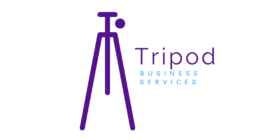If you could have any superpower, what would you choose? While many might choose the ability to fly or super strength, would you choose mind reading or perhaps thought control? Wouldn’t it make life so much easier if you knew exactly what your customers were thinking or if you could control their thoughts to make them buy your products? What if I told you it is possible to hack your customer’s brain?
That’s where marketing psychology comes in.
The human brain is incredible. It’s also incredibly lazy. Your brain doesn’t want to work any harder than it needs to, so it creates shortcuts for regular and expected tasks and for tasks it deems less important, like decision-making or problem-solving.
You’ll notice this effect when you drive a familiar route. Do you really notice every detail, or even consciously decide to take certain turns? Probably not, your brain knows the route, and so it creates a shortcut to save processing time and space.
These shortcuts, called heuristics, are universal. We all use them. You can take advantage of heuristics to understand, predict, and influence the thinking and actions of your customer base.
Let’s look at 5 ways to use marketing psychology to hack your customer’s brain. They are:
- The Commitment Bias
- The Paradox of Choice
- The Social Proof Effect
- The Reciprocity Effect
- The Mere Exposure Effect

What is the Commitment Bias?
Whether consciously or not, we tend to follow through with things to which we have committed a certain amount of time or effort, even if this commitment seems irrational. “I’ve come too far to stop now!” This is called the sunk cost fallacy. How can you harness this commitment bias to create loyalty and engagement with your business?
Most people will respond to a small request. That one step will gradually lead to greater commitments in the future. Design your marketing to be a funnel from a small request that many people will answer to a larger commitment that will lock in their engagement. It doesn’t feel like a commitment to read a blog or look at a social media post.
But once your audience has done that, they are more likely to follow your social media, sign up for your newsletter or take advantage of other free resources you offer. That commitment will eventually lead to your audience making a purchase and committing fully to your business.
What is the Paradox of Choice?
If a little is good, then a lot must be better, right? Wrong! Have you ever heard the expression “A little goes a long way”? The paradox of choice states that as options increase, the stress over deciding also increases and the likelihood of actually choosing something decreases. Basically, multiple options lead to decision paralysis.
How can you reduce the stress of choosing for your customers? Offer fewer choices. Promote a small selection of products as part of a sale. Reduce the number of pricing packages you offer.
Streamline your website by limiting the number of items in the navigation menu and other click points on each page. If you present too many options, your customer may not know what you want them to do, and the result will be them doing nothing.
What is the Social Proof Effect?
Humans are social creatures. When our brain is faced with a new situation, it looks to see what others are doing. Have you ever noticed that most people tend to follow the crowd in unfamiliar areas rather than striking out on their own? Our brain likes to assume that the majority can’t possibly be wrong. While this isn’t always true, you can harness the social proof effect to your advantage.
Testimonials can have a powerful effect. In addition to having a well-organized testimonials page, feature well-chosen testimonials in your ads and sprinkled throughout your website. If you have been endorsed by any well-known brands or people, ask for permission to feature these endorsements. Have you been featured in any major media outlets? List any places you are featured or even link to them. Highlight any awards or partnerships that will add to your credibility.
What is the Reciprocity Effect?
The founder of J.C. Penney stores once said, “Courteous treatment will make a customer a walking advertisement.” If you offer outstanding customer service, your customers will not only return again and again, but they will also freely and gladly recommend you. They will leave positive reviews on popular websites, and they’ll tell their friends and family to purchase your product or service.
In addition to treating your paying customers well, you also want to provide something of value to your potential customers. Your blog, YouTube or TikTok channel, and your social media can all be valuable resources to your audience. You can provide snippets of your paid content, free tutorials, and other informative material or tools. When deciding between two similar companies, most will choose the one they have received the greatest benefit from already.
What is the Mere Exposure Effect?
The more we are exposed to something, the more we accept it and even enjoy it. As Commander Data from Star Trek once said, “As I experience certain sensory input patterns, my mental pathways become accustomed to them. The inputs eventually are anticipated and even missed when absent.”
There is a reason major companies run ads asking if you’ve heard of their brand or certain products. The more often we hear about a brand or see a particular logo, the more likely we are to choose that brand. How can you make sure people are familiar enough with your brand that they will choose you?
Create a unique brand identity that is consistent across all the platforms you use. This includes an eye-catching logo, consistent colour and font choices, and catchphrases that people will associate with your business.
Your brand identity should be apparent on your website, in your blogs, in your social media posts, and in your advertising. If you use ad targeting, pay attention to frequency and timing. There is a fine line between building brand awareness and stalking.
Marketing Psychology and a Marketer’s Responsibility
“With great power comes great responsibility.” We have just discussed several marketing psychology principles that govern how we make decisions. This knowledge must be used responsibly. As ethical marketers, we are not looking to manipulate our customers. Coercing people to buy will not translate to lifelong, happy customers. You want to reach customers that will be a good fit for your business.
Use these hacks to align your marketing message with your ideal customer’s thought processes. Your goal is never to mislead or deceive but rather to motivate your audience to make a decision that will truly benefit them.
Want more tips on how to create amazing content that captures the attention of your audience? Join my Content Now Club!
In this unique membership, we combine the best of all worlds: accountability to get that content out there, support and learning so you can keep growing and more! Join the group here during our special open house period for absolutely free!





